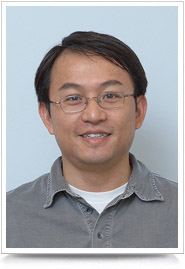Calendar Icon
Jan 15, 2009
Person Bust Icon
By Carole Wilbeck | Engineering
![]() RSS
Submit a Story
RSS
Submit a Story
Dr. Li Tan, assistant professor of engineering mechanics, has received the UNL College of Engineering's new Edgerton Innovation Award. Nebraska Engineering leaders described the honor as the single largest award to one faculty member in the history of the college.
The Edgerton Innovation Award, announced in December 2008, was designated in a vote by titled full professors in the UNL College of Engineering. The nomination criteria specified the recipient should demonstrate ability to attract funding from federal, state and private agencies; integrate research with graduate and undergraduate education; and suggest novel and innovative ideas and projects.
The award's provisions include $2,500 to the faculty member and $10,000 for his or her research, plus $10,000 to recruit excellent Ph.D. students to help conduct the research.
Dr. Tan joined Nebraska's engineering mechanics program in 2005 when the department, led by Dr. Joseph Turner, sought to develop a new area in materials and nanoscience. Tan's Ph.D. studies, completed at the University of Michigan Ann Arbor in 2002, focused on materials; at Nebraska, Tan works in the area of organic electronics and self-assembly.
In Tan's organic electronics lab, his post-doctoral researcher synthesizes novel electronic molecules with self-assembly capabilities. The beauty of these molecules is that they form device-grade films without going through a vacuum, Tan said, since the vacuum technique often limits a device's size or production efficiency. Tan's team collaborates with chemists at UNL to integrate the resulting films as flexible switches. The US Army pursues this technology to serve soldiers, Tan said, with digital maps in flexible displays that can be helmet-mounted and survive harsh environments including high temperatures and humidity.
Tan said in his tiny engineered devices, the organic components have a tendency to align themselves, guided by their "tail," to form networks. Since a disordered network frustrates an efficient transport of electrons, Tan's challenge is to make these networks aligned in 3-D, for greater conductivity.
In another research area, Tan works with UNL physicist Peter Dowben. Together they found some of these organic molecules have unique personality that can be revealed by adding energy, such as through an infrared beam, which helps in probing the molecules' behavior. The scientists are developing a "molecular resonator" that helps the molecules "dance" at certain terahertz frequencies. In this case, the molecules could dance differently when a chemical threat approaches.
Tan's third area of research centers on solar cells for energy gathering. He is building nanostructures that capture light particles, or photons, more efficiently. According to Tan, traditionally the key material in solar panels is inorganic and rigid, and centimeters thick. He said his structure is an organic coating that's thinner (about 100 nanometers) and more flexible, ideally to cover a whole house (rather than a heavy, fixed solar panel on a roof) and receive light from all angles. In this work, Tan said self-assembly is again his strategy.
Tan said he is honored to receive this award named for Harold Edgerton, a 1925 electrical engineering graduate of NU who taught at the Massachusetts Institute of Technology and pioneered strobe photography. The Edgerton Foundation has long supported UNL; the Edgerton Innovation Award helps support and recognize the College of Engineering's promising innovative projects and research.
Submit a Story
